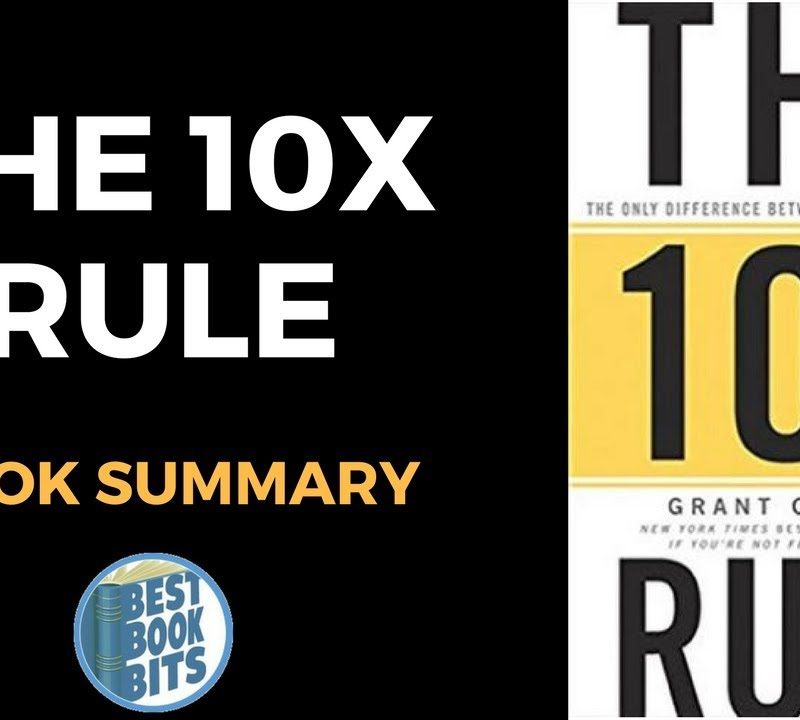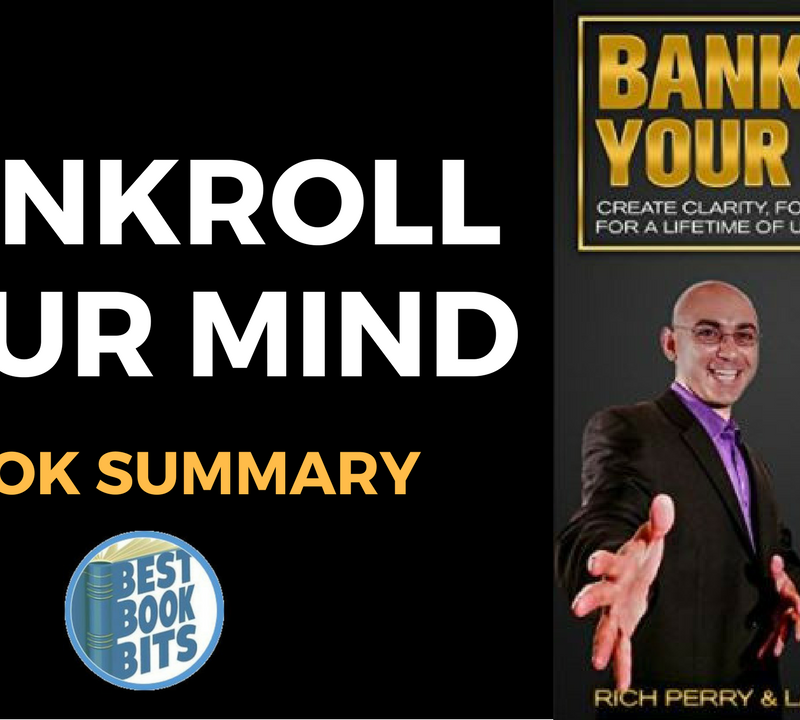★DOWNLOAD THIS FREE PDF SUMMARY HERE
? MY FREE BOOK TO LIVING YOUR DREAM LIFE”
? SPONSOR BESTBOOKBITS BY USING PATREON
? SUPPORT BESTBOOKBITS BY CLICKING THE LINKS BELOW
- 150 PDF Summaries
- Coaching Program
- Subscribe to My Channel
- Website
- Spotify
- Book Club
- Mailing List
RULE 1: DON’T FOLLOW YOUR PASSION
The passion hypothesis
The key to occupational happiness is to first figure out what you’re passionate about and then find a job that matches this passion.
This hypothesis is one of modern American society’s most well-worn themes. Those lucky enough to have choice in what we do are bombarded with this message, starting at an early age. We lionize those with the courage to follow their passion, and pity the conformist.
Recently, a new, more aggressive strain of the passion hypothesis has been spreading. A strain that despairs that traditional “cubicle jobs,” by their very nature, are bad. And suggests that passion requires that you strike out on your own. “Do what you love, and the money will follow” has become the de facto motto of the career-advice field.
There is, however, a problem lurking here. When you look past the feel-good slogans and go deeper into the details, the issue becomes much more complicated. You begin to find threads of nuance. Once pulled, they unravel the tight certainty of the passion hypothesis. Eventually leading to an unsettling recognition: “Follow your passion” might just be terrible advice.
Steve Jobs
Imagine a young Steve Jobs had taken his own advice and decided to only pursue work he loved. We would probably have found him as one of the Los Altos Zen Center’s most popular teachers. But he didn’t follow this simple advice. Apple Computer was decidedly not born out of passion. But instead was the result of a lucky break—a “small-time” scheme that unexpectedly took off.
There’s no doubt that Jobs eventually grew passionate about his work. But so what? All that tells us is that it’s good to enjoy what you do. Like Jobs, should we resist settling into one rigid career and instead try lots of small schemes, waiting for one to take off?
Passion is rare
The more you seek examples of the passion hypothesis, the more you recognize its rarity. Compelling careers often have complex origins. These reject the simple idea that all you have to do is follow your passion. This observation may come as a surprise for those of us who have long basked in the glow of the passion hypothesis.
- Career passions are rare. Studies show that less than 4 percent of identified passions have any relation to work or education. How can we follow our passions if we don’t have any relevant passions to follow?
- Passion takes time. The happiest, most passionate employees are not those who followed their passion into a position. But instead, those who have been around long enough to become good at what they do.
- Passion is a side effect of mastery. Studies show that you need three basic psychological factors to feel motivated for your work. Autonomy, competence and relatedness. Note, passion is not one of these factors.
Passion is dangerous
The more we focus on loving what we do, the less we end up loving it. The passion hypothesis is not just wrong, it’s also dangerous. Telling someone to “follow their passion” is not just an act of innocent optimism, but potentially the foundation for a career riddled with confusion and angst.
Beyond Passion
For some people, following their passion works. When you look to the careers of gifted individuals, such as professional athletes. You’d be hard-pressed to find a professional baseball player who hasn’t been passionate about the sport as far back as he can remember.
RULE 2: BE SO GOOD THEY CAN’T IGNORE YOU
The clarity of the craftsman
There are two different approaches to thinking about work. The craftsman mindset, a focus on what value you’re producing in your job. And the passion mindset, a focus on what value your job offers you. Most people adopt the passion mindset. But in reality, the craftsman mindset is the foundation for creating work you love.
The craftsman mindset
“Stop focusing on the little details. Focus instead on becoming better.”
If you’re not focusing on becoming so good they can’t ignore you, you’re going to be left behind. Irrespective of what type of work you do, the craftsman mindset is crucial for building a career you love.
The craftsman mindset focuses on what you can offer the world.
The passion mindset
“[People] thrive by focusing on the question of who they really are—and connecting that to work that they truly love.”
The passion mindset focuses on what the world can offer you. This mindset is how most people approach their working lives.
When you focus only on what your work offers you, it makes you hyperaware of what you don’t like about it, leading to chronic unhappiness.
The craftsman mindset offers clarity. While the passion mindset offers a swamp of ambiguous and unanswerable questions; “who am I?” “What do I truly love?”
Adopting the craftsman mindset
Put aside the question of whether your job is your true passion, and instead turn your focus toward becoming so good they can’t ignore you. That is, regardless of what you do for a living, approach your work like a true performer. You adopt the craftsman mindset first and then the passion follows.
The power of career capital
The traits that make a great job great are rare and valuable. Therefore, if you want a great job, you need to build up rare and valuable skills—career capital—to offer in return.
Traits that define great work
- Creativity: Ira Glass, for example, is pushing the boundaries of radio, and winning armfuls of awards in the process.
- Impact: From the Apple II to the iPhone, Steve Jobs has changed the way we live our lives in the digital age.
- Control: No one tells Al Merrick when to wake up or what to wear. He’s not expected in an office from nine to five.
How do you get these traits in your own working life? These factors are rare. Most jobs don’t offer their employees great creativity, impact, or control. By definition, we also know that these traits are valuable—as they’re the key to making a job great.
Basic economic theory tells us that if you want something that’s both rare and valuable, you need something rare and valuable to offer in return. This is Supply and Demand 101. It follows that if you want a great job, you need something of great value to offer in return.
The career capital theory of great work
The craftsman mindset, with its relentless focus on becoming “so good they can’t ignore you,” is a strategy well suited for acquiring career capital. This is why it trumps the passion mindset if your goal is to create work you love.
When craftsmanship fails
- The job presents few opportunities to distinguish yourself by developing relevant skills that are rare and valuable.
- There is a focus on something you think is useless or perhaps even actively bad for the worldwithin the job.
- You are forced to work with people you really dislike.
A job with any combination of these disqualifying traits can thwart your attempts to build and invest career capital.
Becoming a craftsman
The central idea of this chapter is that the difference in strategy that separates average guitar players from stars is not confined to music. This focus on stretching your ability and receiving immediate feedback provides the core of a more universal principle—one that provides the key to successfully acquiring career capital in almost any field.
★DOWNLOAD THIS FREE PDF SUMMARY HERE
? MY FREE BOOK TO LIVING YOUR DREAM LIFE”
? SPONSOR BESTBOOKBITS BY USING PATREON
? SUPPORT BESTBOOKBITS BY CLICKING THE LINKS BELOW
- 150 PDF Summaries
- Coaching Program
- Subscribe to My Channel
- Website
- Spotify
- Book Club
- Mailing List
The 10,000-Hour Rule
The idea that excellence at performing a complex task requires a critical minimum level of practice surfaces again and again in studies of expertise. In fact, researchers have settled on what they believe is the magic number for true expertise: ten thousand hours.
If you just show up and work hard, you’ll soon hit a performance plateau beyond which you fail to get any better. To successfully adopt the craftsman mindset, therefore, we have to approach our jobs with a dedication to deliberate practice.
Deliberate practice
Deliberate practice is an approach to work where you deliberately stretch your abilities beyond where you’re comfortable. And then you must receive ruthless feedback on your performance. Musicians, athletes, and chess players know all about deliberate practice. Knowledge workers, however, do not. This is great news for knowledge workers. If you can introduce this strategy into your working life you can vault past your peers in your acquisition of career capital.
RULE 3: TURN DOWN A PROMOTION
The power of control
Giving people more control over what they do and how they do it increases their happiness, engagement, and sense of fulfillment.
If your goal is to love what you do, your first step is to acquire career capital. Your next step is to invest this capital in the traits that define great work. Control is one of the most important targets you can choose for this investment. Acquiring control, however, can be complicated.
The control traps
- It’s dangerous to pursue more control in your working life before you have career capital to offer in exchange. Control thats acquired without career capital is not sustainable.
- Once you have enough career capital to acquire more control in your working life, you have become valuable enough to your employer that they will fight your efforts to gain more autonomy.
In most jobs you should expect your employer to resist your move toward more control; they have every incentive to try to convince you to reinvest your career capital back into your career at their company, obtaining more money and prestige instead of more control, and this can be a hard argument to resist.
Avoiding the control traps
You should only pursue a bid for more control if you have evidence that it’s something that people are willing to pay you for.
If you find the evidence, continue. If not, move on.
RULE 4: THINK SMALL, ACT BIG
“A unifying mission to your working life can be a source of great satisfaction.”
Happiness comes from building a career on a clear and compelling mission—something that not only gives meaning to your work but provides the energy needed to embrace life beyond the said work. A mission can be the foundation upon which you build a love for what you do.
The power of a mission
To have a mission is to have a unifying focus for your career. It’s more general than a specific job and can span multiple positions. It provides an answer to the question, What should I do with my life? Missions are powerful because they focus your energy toward a useful goal, and this in turn maximizes your impact on your world—a crucial factor in loving what you do.
If your goal is to love what you do, you must first build up “career capital” by mastering rare and valuable skills, and then cash in this capital for the traits that define great work. A mission is one of these desirable traits, and it too requires that you first build career capital—a mission launched without this expertise is likely doomed to sputter and die.
How to seek a direction worth pursuing
- Mission requires capital: a mission chosen before you have relevant career capital is not likely to be sustainable.
- Innovation: understanding the adjacent possible and its role in innovation is the first link in a chain of argument that explains how to identify a good career mission.
- A breakthrough: a good career mission is similar to a scientific breakthrough—it’s an innovation waiting to be discovered in the adjacent possible of your field.
- Cutting edge: advancing to the cutting edge in a field is an act of “small” thinking, requiring you to focus on a narrow collection of subjects for a potentially long time. Once you get to the cutting edge, however, and discover a mission in the adjacent possible, you must go after it with zeal: a “big” action.
The art of mission, we can conclude, asks us to suppress the most grandiose of our work instincts and instead adopt the patience required to get this ordering correct.
Missions require little bets
Great missions are transformed into great successes as the result of using small and achievable projects—little bets—to explore the concrete possibilities surrounding a compelling idea.
Rather than believing you have to start with a big idea or plan out a whole project in advance, make a methodical series of little bets about what might be a good direction, learning critical information from lots of little failures and from small but significant wins. This rapid and frequent feedback, allows you to find unexpected avenues and arrive at extraordinary outcomes.
To maximize your chances of success, you should deploy small, concrete experiments that return concrete feedback.
Missions require marketing
Great missions are transformed into great successes as the result of finding projects that satisfy the law of remarkability, which requires that an idea inspires people to remark about it, and is launched in a venue where such remarking is made easy.
A good mission-driven project must be remarkable in two different ways. First, it should be remarkable in the literal sense of compelling people to remark about it. Secondly, you need to also spread the word about the project in a venue that supports these remarks.
In sum, mission is one of the most important traits you can acquire with your career capital. But adding this trait to your working life is not simple. Once you have the capital to identify a good mission, you must still work to make it succeed. By using little bets and the law of remarkability, you greatly increase your chances of finding ways to transform your mission from a compelling idea into a compelling career.
FULFILLMENT
Working right trumps finding the right work—it’s a simple idea, but it’s also incredibly subversive, as it overturns decades of folk career advice all focused on the mystical value of passion. It wrenches us away from our daydreams of an overnight transformation into instant job bliss and provides instead a more sober way toward fulfillment.
★DOWNLOAD THIS FREE PDF SUMMARY HERE
? MY FREE BOOK TO LIVING YOUR DREAM LIFE”
? SPONSOR BESTBOOKBITS BY USING PATREON
? SUPPORT BESTBOOKBITS BY CLICKING THE LINKS BELOW
- 150 PDF Summaries
- Coaching Program
- Subscribe to My Channel
- Website
- Spotify
- Book Club
- Mailing List













